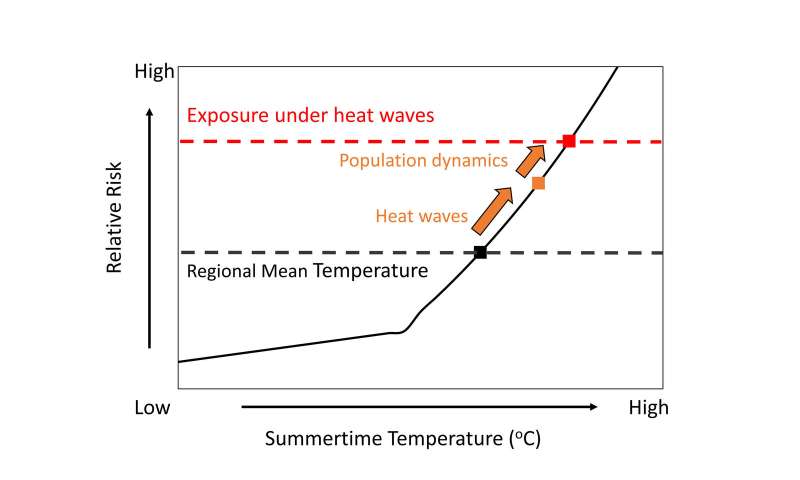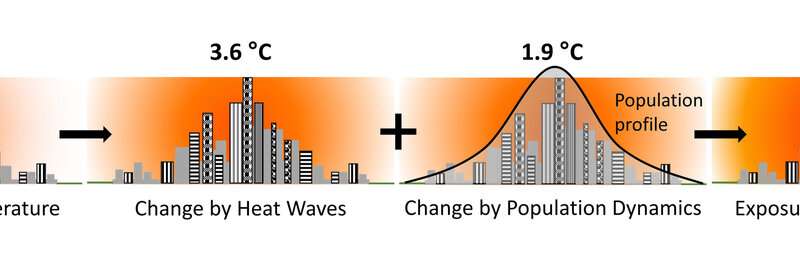Assessing heat wave risk in cities as global warming continues

A trio of researchers with the Hong Kong University of Science and Technology, the University of Alabama in Huntsville and Arizona State University has shown that commuters traveling from the suburbs to cities in the future are going to encounter hotter than expected weather when in they reach their destination. In their paper published in the journal Science Advances, Jiachuan Yang, Leiqiu Hu and Chenghao Wang describe their study of the differences in temperature between actual readings and those that are forecast in urban areas and what it could mean for commuters as climate change continues.
Cities are hotter than outlying areas in the summer due to the materials that are used to make roads and buildings—asphalt, tar and cement hold a lot of heat. This has led to what scientists call the urban heat island effect. In this new effort, the researchers wondered what might happen to people in the future who live in the suburbs and commute into cities during heat waves as the planet becomes warmer. To find out, they accessed databases containing weather information to learn more about differences between forecast and actual temperatures in cities. They also accessed databases of census information, including commuting patterns.
The researchers found that temperatures were typically hotter in cities during heat waves than were predicted by weather forecasters. They also found that the amount varied. Salt Lake City, for example, had the biggest difference—the city was on average 3.8 degrees C hotter during heat waves than was forecast. Overall, the researchers found that out of the 16 cities they studied, temperatures were on average 1.9 degrees C higher than what forecasters predicted. They note that such temperatures are significant because they represent heat events where temperatures are already on average 3.6 degrees C hotter than normal. They note that mortality (people dying) and morbidity (people getting sick) is already problematic in many cities during heat waves. They further note that the problem is only going to get worse due to climate change. They suggest that commuters of the future may face unexpected hazards as they travel from the relatively cooler suburbs to the much hotter cites. They suggest also that city planners need to take such scenarios into consideration as they look to contend with climate change.

No comments:
Post a Comment